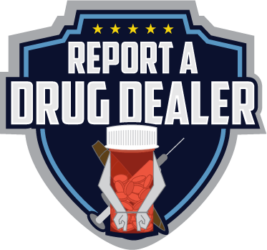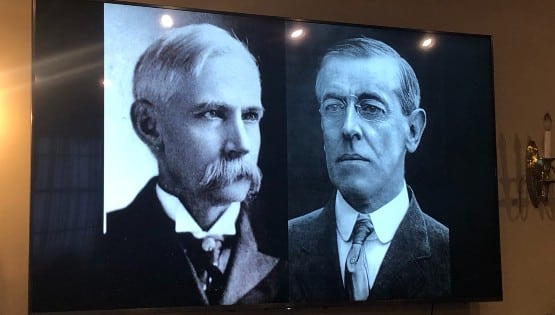
The site would encourage people to “snitch,” she told me, then related the notion that police and prosecutors are too hard on low-level drug dealers, and too lenient on the big guys.
Which, what that itself has to do with the creation of this reporting tool being “racist,” is anyone’s guess.
A year in, police are telling me that the tips generated by the website do tend to target low-level drug dealers.
That’s because the low-level dealers are the ones on the front lines. Kingpins, basically, don’t risk exposing themselves.
Most of the contacts generated by the website are from people who are “irritated at what they see in terms of drug-dealing that is going on in their neighborhoods,” Waynesboro Police Chief Mike Wilhelm told me.
Emphasis: in their neighborhoods. We’re not talking Barbecue Becky calling from the country club.
This is people who “see the money, the drugs, all of this on their street, and they don’t want their kids seeing it, and they don’t want the fallout to impact them,” Wilhelm said.
Let me speak from experience here on this point. Next door to me is a house converted into apartments, and for a couple of years, two of the residents appeared to be low-level drug dealers.
I say they appeared to be because: they would take turns different days of the week, different times of the day and night, standing on the street or in the alley waiting for cars to drive up, approach the cars, briefly interact with the drivers, reach in, reach back out, rinse, repeat.
They were otherwise super nice guys, and I came to suspect that they were so low-level that it was likely that they were just dealing enough to support their own personal addictions, which, I’m not judging, not at all, none of my business, that part of it.
The risk to me as neighbor was: what if one of them stiffed their supplier one week, and the supplier came looking for revenge?
Or: what if one of their customers couldn’t afford their latest installment, and decided to rob their supplier?
Or: a customer shows up after-hours, sees my house, my car, whatever, decides, you know, I can steal stuff from there, sell it, get money, come back tomorrow, and get my fix?
In an instant, what some folks like to refer to as a victimless crime isn’t that at all.
Wilhelm confirmed in our conversation that ancillary to drug crimes themselves is that kind of fallout: car break-ins, property theft, larcenies, shoplifting and related crimes.
The police chief estimates that 75 percent of the crimes that his department investigates is related to the illegal-drug trade.
ReportADrugDealer.com is another tool, then, for police to use to try to keep the community safe.
And it’s just that: a tool.
Because of the nature of the tips, the information cannot be used as probable cause to obtain search and arrest warrants on their own, according to Wilhelm. The information gained from the website tips has to be independently verified through other means.
A good guess, Wilhelm said, is that 10-20 percent of the tips eventually lead to an arrest, which doesn’t sound like something you’d brag about, but it’s actually not entirely bad news.
The vast majority of complaints are related to targets previously unknown to police, Wilhelm said.
And, yes, according to Wilhelm, around 90 percent of the complaints involve low-level dealers who can become the basis of larger investigations.
Because, you watch TV, so you know, you sniff around the low-level folks on the front lines to try to discover who the kingpins are behind the scenes.
This is how the investigative process works, basically.
I wrote a column a few weeks ago saying that the long-term solution to our local drug problem isn’t incarceration, but rather education and economic development: improve our schools, so that our kids are trained for good-paying jobs, and attract the industries that will provide those jobs.
With our stagnant local job sector and underfunded schools, we suffer from what I call a poverty of imagination, a feeling that it doesn’t pay to work hard, to achieve, so why try?
I still obviously very much believe that, and will work for better schools and economic opportunities, and push our myopic city leaders to expand their capacity for community vision.
That’s how you deal with a community illegal-drug problem: you make it so that people don’t feel the need to self-medicate their despair.
But in the meantime, keeping our community safe from the illicit-drug trade and related property crimes is key, and anything but racist.
Unless you assume it’s Barbecue Becky sending in all of those anonymous tips.










